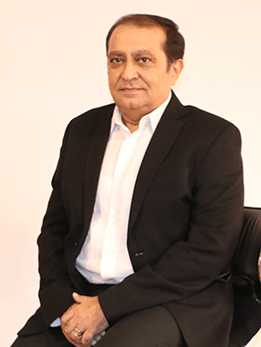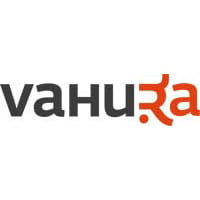

Global general counsel | Tech Mahindra






Vineet Vij
Global general counsel | Tech Mahindra
Team Size: 100+
Could you share an example of a time when you came up with an innovation that improved how your legal team works and did not come at a large expense?
I would say that not all improvements or changes require technology, a simple restructuring of the team helped us improve efficiency and the team’s overall learning experience. In many organisations, legal teams are typically structured based on work domains, such as contracting, litigation, compliance, advisory, or their internal lines of business. In my experience, this, at times, hinders the overall growth of team members, and leads to monotony at work. Departing from the traditional structure, we adopted a blended organisational structure. We divided the legal team into different regions, namely Americas, Europe, Middle East and Africa, India, and APAC. In this structure, each region is managed and supervised by its respective regional general counsel, leading specialised teams that handle commercial deals, M&A’s, global litigations, and key accounts. This approach immensely helped the entire team to have a multi-dimensional approach, wherein, an employee gains hands-on experience with contracting, advisory, and litigation in their respective region. Over time, they are encouraged to explore more geographies for enhanced learning.
Furthermore, for niche and specialised areas such as M&A, global litigation, and global compliance, companies often rely on external support, which entails higher costs and a lack of exposure for the in-house team to these specialised domains. To address this, we have established various Centers of Excellence (COEs) under which the legal team receives training, visibility, and gains firsthand experience of working in diverse geographies and niche practice areas. This approach effectively reduces the company’s expenses and dependency on external counsel.
Leveraging technology is crucial for cost optimisation. I rely on the latest technologies to enhance task efficiency and efficacy. Our legal department embraces digital transformation, equipped with various technological tools and systems. Each in-house counsel easily streamlines the contract review process using our contract lifecycle management tool, powered by artificial intelligence and machine learning. We have established internal legal portals with a knowledge repository, offering real-time access to a plethora of advisories vetted by leading global law firms. These portals also allow us to meticulously track ongoing litigations, disputes, and non-compliance matters through bespoke portals and automated apps. Modern technology supports legal teams in contract management, billing, legal research, and eDiscovery, among other tasks. These tools ensure a seamless experience, enhance our focus on work quality, and increase efficiency and productivity in our commercial deals at an organisational level.
If you had to give advice to an aspiring in-house lawyer or general counsel, what would it be and why?
The role of an in-house counsel is one of the most crucial roles in the current age. We have seen a paradigm shift from being a mere support function to today, an all-round business lawyer who acts as a business enabler, an influencer, and someone who can drive business and ensure business compliance. The general counsel’s role is constantly evolving and has witnessed many changes in the last few years. They are becoming more integrated with the corporate side of the business, and a general counsel’s scope of responsibility is expanding. A shift can be observed in the role of a general counsel, as they move from solely providing legal advice and identifying legal risks to getting involved in the business of the organisation by offering efficient business advisory. With this shift comes the need to develop new skills in addition to having impeccable knowledge of the law. Multi-jurisdictional expertise, exposure to the laws of other countries, knowledge of all aspects of the law, and the ability to be a part of the core management team are some of the key factors that will make one successful as an in-house counsel and general counsel.
With so many roles to play and so much at stake, modern general counsel must offer companies more than just legal expertise. As part of the evolution of a top legal officer toward a “full strategic business partner” and potential successor to the CEO, general counsel need to look beyond the traditional skills required in their positions.
The younger generation hoping to succeed as in-house counsel must bear in mind that their legal function must always be in tandem with the business and should always facilitate the advancement of a business. Being aware of current legal developments and understanding their implications on the business is an essential requirement.
To sum it up, I would say that as an in-house counsel, you are not just a lawyer but also a business professional. Therefore, providing not only legal advice but also aligning with business needs is the key skill one needs to develop.
Global general counsel and chief legal officer | Tech Mahindra
Global general counsel and chief legal officer | Tech Mahindra
Vineet Vij is the global general counsel of Tech Mahindra and group companies leading a team of over 100 lawyers spread across the globe with presence in India, US, Mexico, UK, Netherlands, Israel. He is responsible for taking care of the legal and regulatory aspects and multi-billion cross-border commercial transactions, mergers and acquisitions, disputes and litigations, global compliances, legal policy and regulatory, IPR, strategic legal support. As part of the overall structure, the legal teams of group companies worldwide, namely, Comviva Technologies, Born Group, Target Group, Tech Mahindra Business Services, LCC also work under Vineet’s supervision and guidance.
Vineet has experience of over 27 years at reputed organisations like TCS, HCL, American Express and as an independent legal practitioner and has worked across variety of practice areas including commercial and contract law, litigation and dispute resolution, cross-border M&As, global regulatory compliances, financial and banking laws, real estate SEZ and STPI regulations, company law, IT, data protection, privacy, cyber and IPR laws, criminal law, telecommunications, arbitration, employment, bankruptcy, competition, and indirect tax laws.
Vineet has B.Com. (Hons) qualification from SRCC and LLB from Delhi University with additional qualifications in company law, labour laws, industrial relations and personnel management, IT and cyber laws. He also serves on the Board of Studies and Advisory Boards of leading law schools, editorial board of legal journal and magazines and member of various associations and advocacy groups such as CII, FICCI, ASSOCHAM and INBA.